Mark Baker, MD, FACEP
Aloha to Hawaii ACEP Members:
We take care of everybody in our emergency departments. We can diagnose both common and rare conditions. We can treat a lot of things, but as we all know we cannot treat everything. Prevention is more important for things that we cannot really treat. If we step outside our box we have the opportunity to help prevent disease.
Let’s talk about meth, “ice.” I don’t feel like I’m doing anything in the Emergency Department to get those patients to stop. There must be something that we can do outside of the ED. I sent the following email to a number of non-ED people. If you are interested in joining me, please let me know.
****
If you are getting this email, you are in a group interested in increasing efforts to combat the use of crystal methamphetamine in Hawaii. I created a new email to facilitate communication with this group. I would like to confirm your interest before I reveal emails to others in the group. We have broad representation, but it needs to be broader. I am on Oahu but know this problem extends well beyond Oahu and Hawaii. Please forward this email to anyone you think may have interest in fighting the “meth epidemic.”
When Pali Momi Medical Center opened 30 years ago there were a few patients who were in and out of the ED struggling with their meth problem. The power of the addiction was apparent in the eyes of those patients who could not quit despite heart failure bad enough that a transplant was their only solution – but not possible because they could not quit. Those patients were few but memorable.
Now the problem is epidemic, so bad that I recently found myself looking at an EKG the paramedics sent before they called on the radio. The patient’s age on the EKG was 41, there were signs of ventricular hypertrophy – so I knew what the problem was – “meth heart.” And it was. A recent telling comment from a patient who wanted to stop using was “meth is like candy in Waipahu.” I have worked weekend night shifts when a third of the patients in the department have problems stemming from meth use. We see cardiac and psychiatric problems affecting individuals, but the addiction impacts families and the communities in so many ways.
So, what steps can we take? I have listed some ideas and know there are more to come. While I am an advocate of taking things one step at a time, I fear that will not work fast enough to fight meth. The drug is gaining on society and we need to fight it in multiple ways. In considering my primary goal, I hesitantly state that I am not very hopeful we can help longtime users with their addiction, but we can try. More importantly, we must warn our community, especially our children, to never ever try this terrible drug.
Below is a list of potential actions we could take; all are up for discussion. I would like to have your input and know what focus you would like to have with this effort. This would be in preparation for a meeting, likely late summer:
- Organizational Websites: I registered these:
I intend for this group to have further discussion before building them. There could be two organizational websites, one for us and one for those addicted. One could include educational information. The other could have links to some of the many frightening videos already posted on the Internet.
- Advocacy
- School educational efforts.
- T-shirt campaign: “don’t meth with me” or “ice no nice.”
- Recording interviews with users, this could be in hospitals or other sites including homeless camps.
- Research
- Identifying the frequency of use.
- Medical research could involve cardiac, psychiatric, pediatric, ED, anesthesia and more.
- Liaison with Other Organizations:
- Department of Health Liaison
- Police Department Liaison(s), Statewide
- Homeless Shelter Liaison
- Liaison to other community organizations
- Opiate efforts: I believe that nationally (and locally) we should be piggybacking on efforts to curb opiate use. This takes advantage of existing infrastructure. There is funding available to combat opiate addiction; it may take legislation to allow communities to determine which addiction is their priority.
- Legislative efforts: both local and (if successful) it could be national. I have discussed the seriousness of the problem with staffers for Representative Ed Case.
- Media:
- Social media campaign, radio, TV news, TV commercials, newspaper.
- Medical, stories for the ‘throwaway’ journals.
I work at Pali Momi Medical Center and am very active with the Hawaii Chapter of the American College of Emergency Physicians, but this group will not be an HPH or ACEP group. And this effort is not meant to supersede existing efforts to combat this terrible problem. Please let me know if you would like to be part of this effort and if you have any focus you would like to be involved with. Let me know if you prefer a different email address. I will work on scheduling a meeting. By helping each other in this effort we can save some lives and save some families from the torment I see in the eyes of parents whose child is addicted.
Mahalo,
Mark Baker, MD, FACEP
President, Hawaii Chapter ACEP
